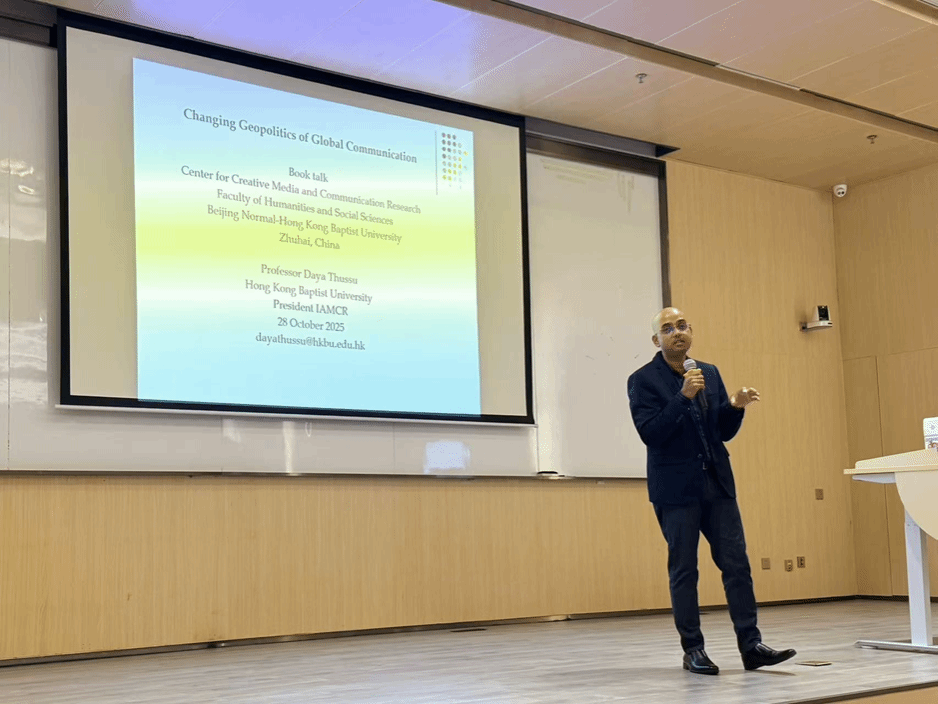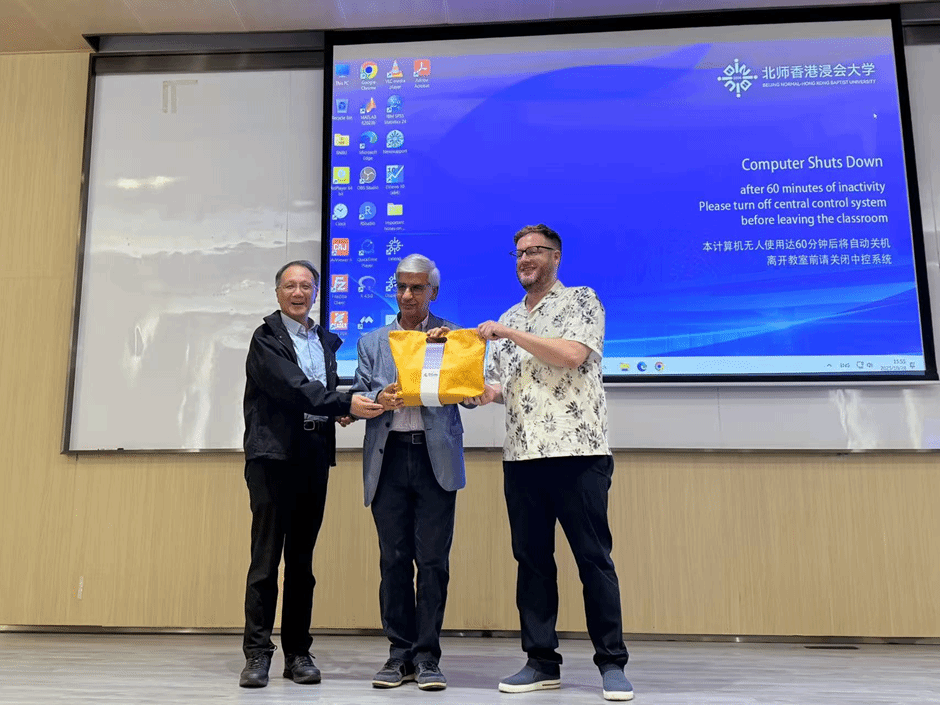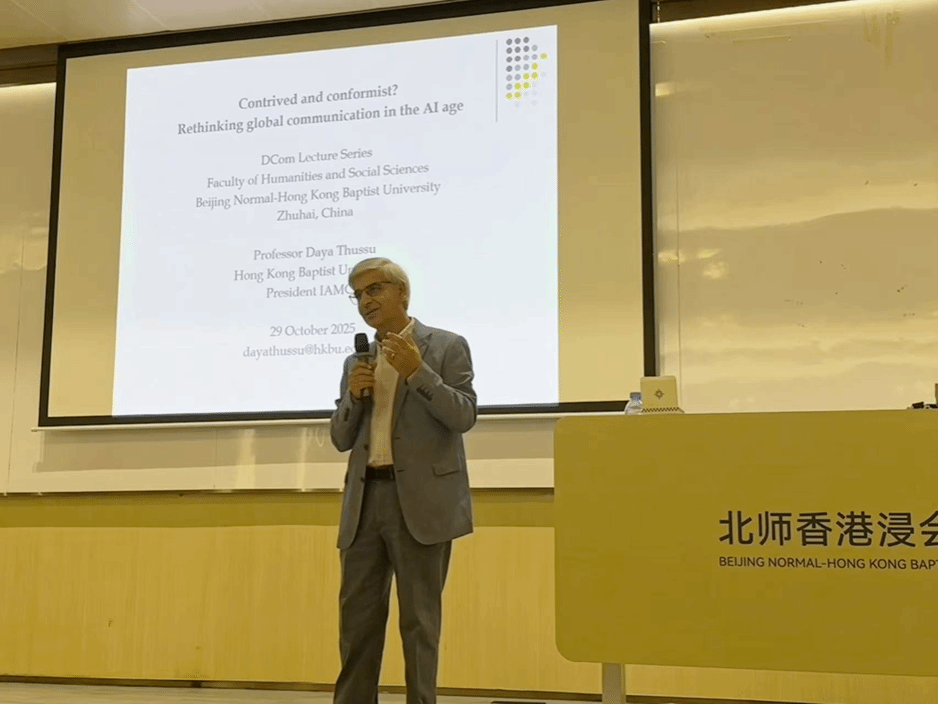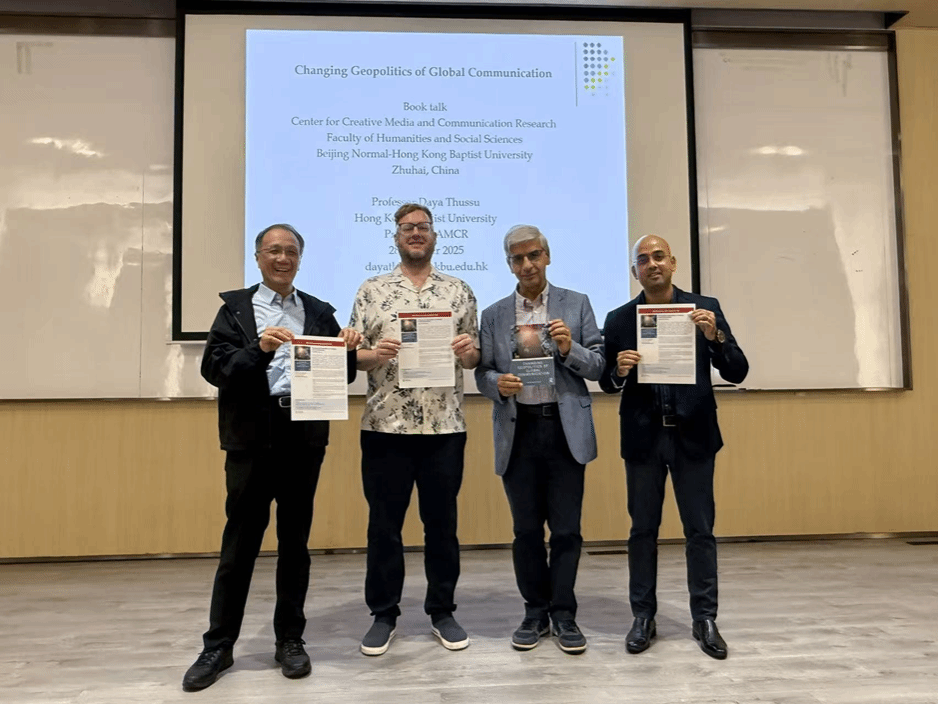
Prof. Daya Thussu, a globally renowned scholar from Hong Kong Baptist University and President of the International Association for Media and Communication Research (IAMCR), gave two lectures titled “Changing Geopolitics of Global Communication” and “Contrived and conformist? Rethinking global communication in the AI age” in Beijing Normal Hong Kong Baptist University during Oct. 28 and 29. These lectures are co-sponsored by the Department of Communication (DCom) and the Center for Creative Media & Communication Research (CCMCR). Dr. Anilesh Kumar, Assistant Professor in the Department of Communication, hosted the lectures.

Dr. Anilesh Kumar, Assistant Professor in the Department of Communication, hosted the lectures.

Prof. Tze-ki HON, Dean of Faculty of Humanities and Social Sciences (left) and Dr. Jesse Owen Hearns-Branaman, Head of Department of Communication (right) gave souvenirs to Prof. Daya Thussu (middle).
In the first lecture titled “Changing Geopolitics of Global Communication,” Prof. Thussu introduced the current situation of reshaping global communication: the idea of "de-Americanization" is raising in the global community, as newcomer economies are forging horizontal partnerships to challenge the Western-dominated discourse system, and constructed a multipolar world order. Through construction of communication infrastructure facilities like the Digital Silk Road, China has expanded its influence within the Global South, yet it concurrently faces a crisis of narrative trust in international communication.
During the Q&A, Prof. Thussu further elaborated that "de-Americanization" is not just a phrase, but a continuum question of rethinking, and a break and change from the next level. He also noted that China's economy maintains stable growth amid in part pressures and its current economic difficulties are temporary, but they may face another challenge: the large working-age population could confront new employment issues as AI displaces some of the workforce.

Prof. Daya Thussu shared his opinions in the lecture of “Contrived and conformist? Rethinking global communication in the AI age.”
In the second lecture titled “Contrived and conformist? Rethinking global communication in the AI age,” Prof. Thussu combined the previous day's geopolitical perspective to discuss how AI reshaped global communication order. He illustrated that AI is deeply intertwined with geopolitics like the dominant train across the world. While leading AI companies are concentrated in the U.S., countries like China and India are rising in terms of technology and resources, actively exploring their own development patterns. However, he emphasized that ethical AI governance necessitates global cooperation. Citing a UN report on “Governing AI for humanity,” Prof. Thussu mentioned addressing issues, such as deepfake, misinformation and the digital divide, requires international coordinated oversight.
Prof. Thussu talked to the young students that the human mind is not like ChatGPT, but it's a surprisingly efficient and even elegant system that operates with a small amount of information. It seeks not to infer crude correlations and creates explanations among data points. “Why do you think people go to university? To find explanations, to think through ideas,” said him.

Prof. Tze-ki HON, Dean of Faculty of Humanities and Social Sciences (from the left), Dr. Jesse Owen Hearns-Branaman, Head of Department of Communication, Prof. Daya Thussu and Dr. Anilesh Kumar, Assistant Professor in the Department of Communication took a group photo.
Reporter: ZHOU Yujiazi (Jessie)
Photo: CHEN Yutong (Rainie), ZHOU Yujiazi (Jessie)